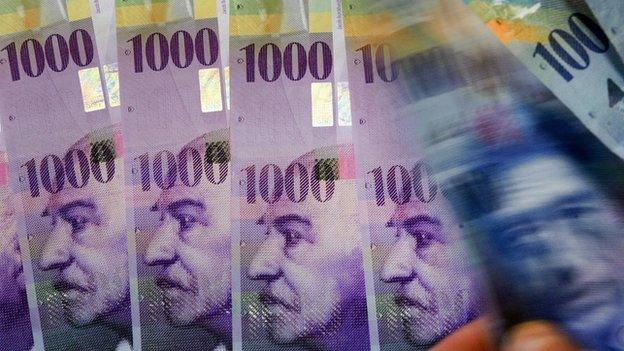Swiss sanctions dilemma over Russia
- Published
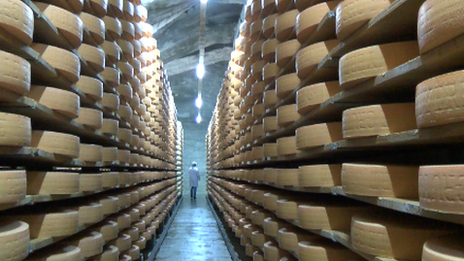
Cheese makers in Switzerland are worried the sanctions will be accepted
Switzerland is facing a diplomatic dilemma over its decision not to go along with international sanctions against Russia, imposed by the European Union and the United States in response to the crisis in Ukraine.
Neutral, and not a member of the EU, Switzerland has chosen instead to ban the export of military equipment to both Russia and Ukraine, and says it intends to make sure financial sanctions imposed by the EU and the US cannot be broken in Switzerland.
The Swiss government says it is especially important to preserve neutrality amid the tensions between Russia and Ukraine, because Switzerland currently chairs the Organisation for Security and Co-operation in Europe (OSCE) and has offered its services as a peace negotiator between the two countries.
But some EU members have suggested the Swiss position is motivated more by self-interest, pointing to the fact that Switzerland did not adopt sanctions against apartheid South Africa - a move thought to have brought big financial gains to Swiss banks.
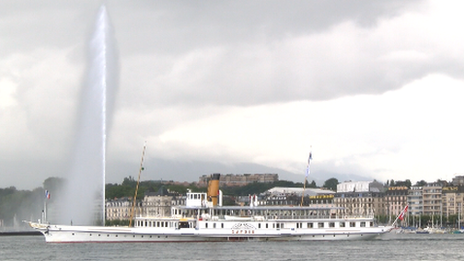
Switzerland is not a member of the European Union
More cheese please
And at first glance the benefits to Swiss food producers look potentially enormous: Moscow's response to EU sanctions - a ban on fresh food imports from the EU - does not apply to Switzerland.
For Swiss cheese maker Anthony Margot, that has led to "dozens" of calls a day from Russian cheese distributors, hoping to fill the huge gap which will be left by French camembert, Dutch edam or Italian mozzarella.
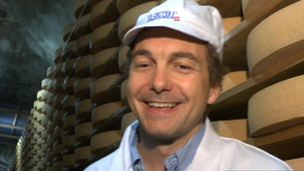
Cheese maker Anthony Margot is worried for his staff
"Some of them are calling in tears," he says. "The situation is terrible for them, they fear they will lose their jobs, everyone wants to buy Swiss cheese now."
Unfortunately for the Russians, Swiss cheese makers are unlikely to be able to meet the demand as most of them are small, village-based businesses.
Mr Margot makes gruyere cheese, which takes several months to mature. All of his currently ripe cheese is reserved, a small part of it for existing clients in Russia, but most of it for Europe.
Even if he did try to ramp up production, there is no guarantee the sanctions would still be in place, and the demand still there, when the cheese was ready. And he has no capacity to supply the demands he is getting right now.
"They want to import lots and lots of dairy products," he says, explaining that one Russian caller had hoped for the immediate delivery of several tonnes of mozzarella.
"It doesn't work like that, we can't just invent thousands of cows in Switzerland."
Financial sector gain?
But the fact that Swiss food producers have escaped Russia's import ban has focused attention on Switzerland's overall position on sanctions, and the spotlight is particularly intense on its financial sector.
Since the end of the Cold War, the ties between Russian business and Switzerland's banking and commodity sectors have grown, and flourished.
Imogen Foulkes reports on the problems staying neutral can cause for Switzerland
There is now an estimated $15bn (£9bn) of Russian assets invested in Swiss banks. Moreover, 75% of Russian oil and 66% of Russian grain is traded through the city of Geneva, a global hub for commodities.
Neither oil nor grain are subject to any international sanctions so far, but both the EU and the US have imposed sanctions on Russian banks, and commodity trading requires finance.
That means, says Stephane Graber of the Geneva Traders Association, that his members will still have to be very careful.
"They are international players," he explains. "So they are already subject to the sanctions that are decided by the EU and the US.
"Because of their financing, they are very dependent on the banks, there is not a ban on the energy trade, but you have to be very careful who you are trading to."
Spectre of Paribas
And when Mr Graber insists there is "no possibility to come to Switzerland to escape the sanctions", he has one very strong reason for his certainty: not the Swiss government's determination to keep Switzerland clean of sanctions busting, but simple fear of the might of the United States.
When French bank BNP Paribas was fined an eye-watering $9bn in June for violating US sanctions against Iran, Sudan and Cuba, it was a warning to financial institutions around the world that Washington is determined to pursue and punish those who defy US policy.
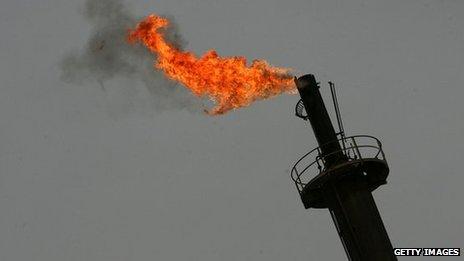
Some 75% of Russian oil is traded through the city of Geneva
Othmar Wyss, former head of export control in the Swiss department of economic affairs, says Swiss banks, already in trouble in the US for helping American account holders evade taxes, would be mad to even consider doing business with anyone on the current list of sanctions against Russia.
"If a Swiss bank or financial intermediary tried to circumvent US or EU sanctions, this would be absolutely crazy," he says.
"Following the lessons learnt by Paribas, I can't imagine there are Swiss banks which would dare to circumvent those sanctions. It would be suicide."
And Mr Wyss is unhappy at accusations from EU leaders, most notably Estonian President Toomas Hendrik Ilves, that in not adopting EU sanctions, Switzerland is acting "to gain an advantage for its banking sector".
"He probably doesn't understand our neutrality, or not well enough," says Mr Wyss.
Unsustainable position?
The Swiss government hopes it has now found a solution which will preserve Switzerland's neutrality, keep the EU and the US (its biggest trading partners) happy, and not impose too many of its own restrictions on the Swiss financial sector.
But Swiss newspaper headlines like "Switzerland walking on eggs", and "Switzerland continues to walk a diplomatic tightrope" indicate not everyone in the country shares the government's optimism.
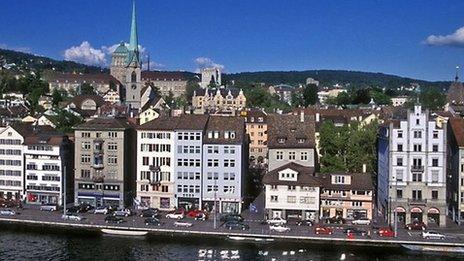
Switzerland is an "important place" for Russian oligarchs, say campaign groups
"I'm not sure the position is sustainable," says Olivier Longchamp at Declaration of Berne, a campaign group which keeps a close eye on Switzerland's financial sector.
"There are strong financial ties between Russia and Switzerland, we know that. We know that Switzerland is an important place for Russian oligarchs."
"If the situation [between Russia and Ukraine] escalates I'm really not sure we can sustain it."
And that is exactly what cheese makers like Anthony Margot worry about.
He has not yet sold a single extra kilo of cheese to Russia, and instead fears Switzerland will bow to pressure from Brussels and adopt the EU's sanctions.
So rather than gaining new customers, he could lose the few existing ones he has in Russia.
"Why? Why?" he asks. "We join the sanctions and tomorrow I tell five employees in my company that I don't have any more a job for them because we don't sell to Russia? I don't want this situation for my company or for Switzerland."
- Published19 August 2014
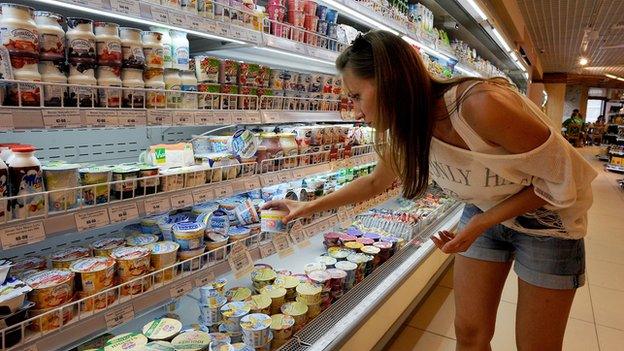
- Published18 August 2014
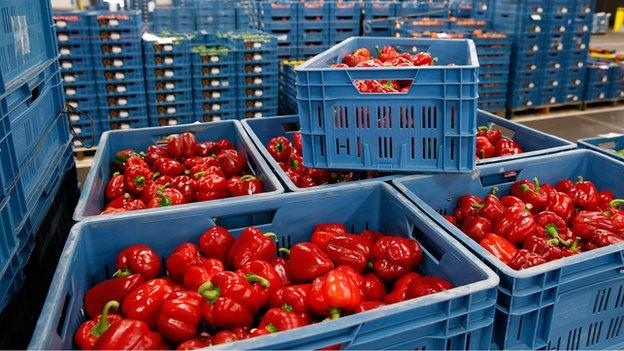
- Published15 August 2014
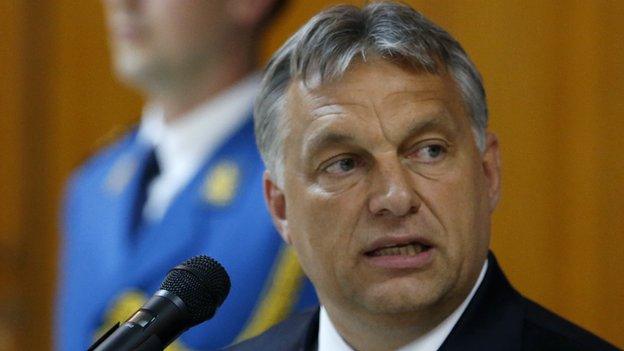
- Published7 August 2014
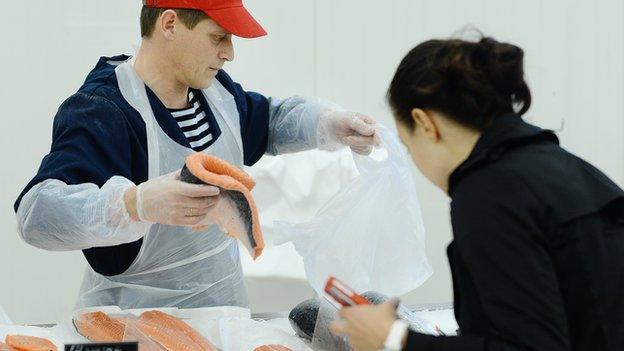
- Published5 August 2014
